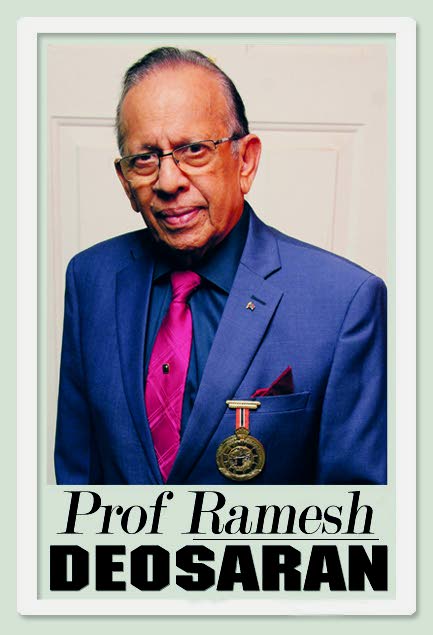Covid19, China and the media

Through covid19, we face over 500 deaths and over 17,000 cases, rising every day.
Of course, we need faith, hope and prayers – but get the vaccines too.
More scientifically, however, there is room for in-depth analysis; for example, why in May alone, deaths rose from just two on May 1 to 23 at the middle of May and 18 at the end of May.
Mainstream and social media, in different ways, play important roles in this and the related crime situation. The media continuously provide important details apart from the recurrent controversies over management of the covid19 spread. Quite regularly, too, we hear of “media bias” by active politicians and numerous social media contributors.
In fact, next year two related research projects should be properly undertaken by experts. One, on how the various mainstream media reported the growing pandemic and its management between January 2020 and December 2021. Two, how the different media reported on crime and policing from January 2018-December 2021.
With the latter subject, crime and policing, there have been very obvious differences.
Media reporting of crime, a specialised area of criminology, is now widely taught and researched in journalism schools. The reputable Columbia (University) Journalism Review regularly examines media bias and preferential treatment.
In his book Media Process and the Social Construction of Crime, Prof Gregg Barak noted how crime reporting has always presented professional challenges, especially when heavy public relations seeks to twist the news. Inside contacts for crime news are useful, but noticeably, while reporters need news from the police, especially scoops or police-involved shootings, this is usually obtained without collaboration or independent verification.
Trust and confidence in the police are therefore critical for justice.
Trust in the media too. Using selected reporters to utilise police contacts faces professional challenges. Too much familiarity could breed complicity.
Apart from market share, an industry-supported scientific inquiry into credibility, independence and preferential treatment will be useful for strengthening the profession as well as guiding advertisers.
We have two schools of journalism (one at UWI, another COSTAATT) that should be able to undertake these two public interest projects.
Whether they have started or not, I am prepared to raise a grant of $10,000 towards the one that begins first. I will also provide my media files if required. The reports from this original work and the discussions that will likely follow will help train journalists at these two schools.
During the years 1979 to 1988, this country experienced intense debate over media bias and political reporting. It was so heated that in 1986, PM George Chambers launched a blistering attack against TTT and Radio 610. At a public meeting in San Fernando, he declared: “When it comes to objectivity, there is a complete lack of objectivity, in addition to constantly playing one calypso against the PNM.”
Then PNM senator Robin Montano, at a 1988 Carenage meeting, said the press “tucked away certain stories” while anti-PNM stories “got prominence.”
Publisher Ken Gordon insisted that there be no government regulations for the press. In 1987, the new NAR government promised to liberalise the electronic media.
Some of our senior outstanding professionals today graduated then from UWI Extra Mural Mass Communication Programme. (eg Tony Rakhal-Fraser, Wesley Gibbings, Anna-Maria Garcia-Brooks) As former supervisor and lecturer in that programme, I proudly still keep their project reports on ownership and news reporting. We held seminars on the New World Information Order which sought to remove bias against developing countries. I got into the media debate then by publishing research papers in Caribbean Review on press freedom, the tensions between the free press and Grenada’s People’s Revolutionary Government (PRG) and a book on the Grenada revolution.
These tensions continue between governments and the media. Over 20 years ago, China declared its foreign policy was to have Chinese living in all parts of the world. Having substantially achieved that, China has been consolidating its world dominance by applying both hard and soft power.
China now pushes hard against “western media bias,” especially against covid19 allegations. Pushing its Belt and Road Initiative (BRI) while building railways, bridges and roads across Africa, last week President XI Jinping asked all his diplomats to be “kind and gentle” with other countries and extend their “circle of friends.” Engaging the press is part of soft power.


Comments
"Covid19, China and the media"